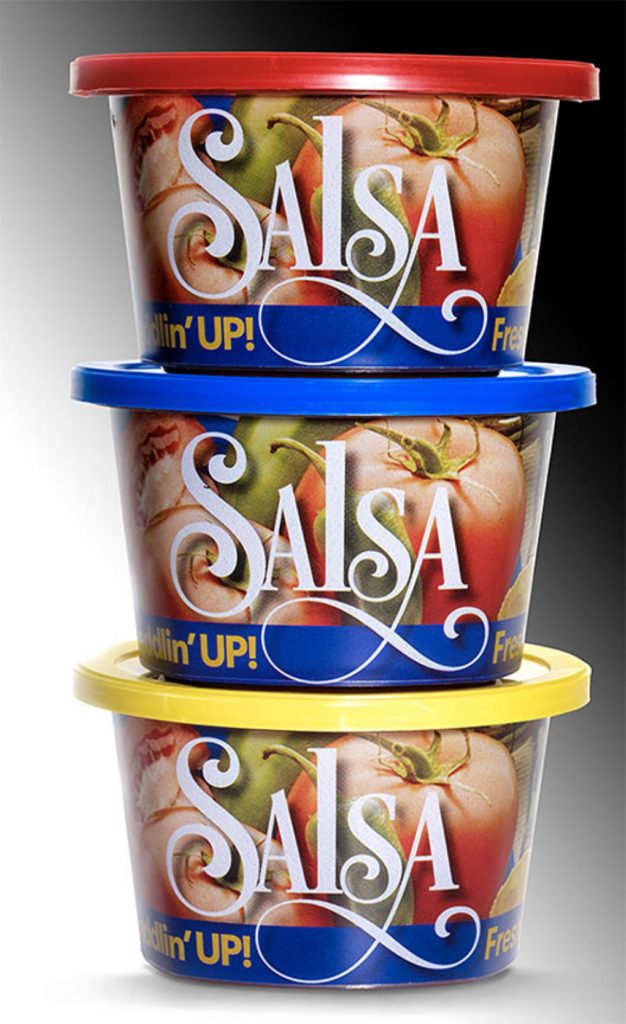On July 31, Kroger was notified by supplier Onions 52 that they had received red, yellow, and white onions from Thomson International, Inc., which had been implicated in the salmonella-related outbreak. As a result, Kroger recalled cheese dips containing the onions because they have the potential to be contaminated with Salmonella. No customer illnesses have been confirmed to date. On August 1, bulk onions sourced from Thomson International, Inc. were removed from sale in stores that had been identified as receiving the affected product. Subsequently, it was determined that several in-store made cheese dips may have used red onions from the produce department as an ingredient. The dips, in plastic containers, were sold between May 15, 2020, and August 6, 2020. These items have been removed from store shelves, and the company has initiated its customer recall notification. @ https://www.fda.gov/safety/recalls-market-withdrawals-safety-alerts/kroger-recalls-cheese-dips-because-possible-health-risk#:~:text=Kroger%20Recalls%20Cheese%20Dips%20Because%20of%20Possible%20Health%20Risk,-When%20a%20company&text=No%20customer%20illnesses%20have%20been,in%20the%20salmonella%2Drelated%20outbreak.
ruth
Kroger is recalling cheese dips sold at because they have the potential to be contaminated with Salmonella
ruth
Kader Exports recalled certain consignments of various sizes of frozen cooked, peeled, and deveined shrimp sold in 1lb, 1.5lb., and 2lb. retail bags due to Salmonella. The product has been distributed nationwide from late February 2020 to Mid-May 2020. The brand names of the products are: AQUA STAR RESERVE/ CENSEA/ FRESH MARKET/ KIRKLAND/ TOPS/ UNISTAR/ WELLSLEY FARMS. There have been no reports of any illnesses to date associated with these cooked shrimp. The cooked shrimp imported by Kader Exports was tested by the FDA and found to contain Salmonella. The probable root cause for this recall is cross-contamination. The company has eliminated the source of contamination, and preventive steps were taken. @ https://www.fda.gov/safety/recalls-market-withdrawals-safety-alerts/kader-exports-recalls-frozen-cooked-shrimp-because-possible-health-risk?utm_campaign=Kader%20Exports%20Recalls%20Frozen%20Cooked%20Shrimp%20Because%20of%20Possible%20Health%20Risk&utm_medium=email&utm_source=Eloqua
Kader Exports, with an abundance of caution, is recalling certain consignments of various sizes of frozen cooked, peeled and deveined shrimp sold in 1lb, 1.5lb., and 2lb. retail bags. The product has been distributed nationwide from late February 2020 to Mid-May 2020 because it has the potential t
ruth
The Salmonella outbreak due to onions from by Thomson International caused Spokane Produce, Inc. (Spokane, WA) to recall salsa products containing onions. The salsa products were distributed in ID, MT, OR, WA states and it reached consumers only through retail stores. The recalled products were distributed from 05/13/20 to 08/10/20. Retail products were packaged in 15oz. plastic tubs and institutional size one-gallon plastic containers. No illnesses have been reported in association with these salsa products to date. @ https://www.fda.gov/safety/recalls-market-withdrawals-safety-alerts/spokane-produce-inc-issues-recall-products-containing-onions-because-possible-health-risk?utm_campaign=Spokane%20Produce%20Inc.%20Issues%20Recall%20of%20Products%20Containing%20Onions%20Because%20of%20Possible%20Health%20Risk&utm_medium=email&utm_source=Eloqua&elqTrackId=775743C98E98388C1963F89BD0FFF019&elq=0416916d9e3f418695a62b54cc8aee99&elqaid=13748&elqat=1&elqCampaignId=11780
Spokane Produce, Inc. of Spokane, WA is voluntarily recalling salsa products containing onions as a result of the expanded onion recall initiated by Thomson International, Inc., which resulted in a recall by Spokane Produce’s onion supplier. These recalls are due to concerns of the potential for con
ruth
Progressive Produce LLC recalled a limited quantity of red and yellow onions as a result of a recall initiated by Thomson International, Inc. due to potential Salmonella. The recalled products were sold on the West Coast, at Trader Joe’s (conventional red onions sold only in Arizona, California, Nevada, and Utah stores) and Ralph’s (yellow onions sold only in California stores). The onions are sold loose in bulk bins. Progressive Produce has not received any reports of illnesses to date associated with these recalled items. @ https://www.fda.gov/safety/recalls-market-withdrawals-safety-alerts/progressive-produce-voluntarily-recalls-red-and-yellow-onions-because-possible-health-risk
Progressive Produce LLC is voluntarily recalling a very limited quantity of red and yellow onions as a result of a recall initiated by Thomson International, Inc., which supplied affected onions to Progressive Produce. This recall is being made out of an abundance of caution due to the potential for




